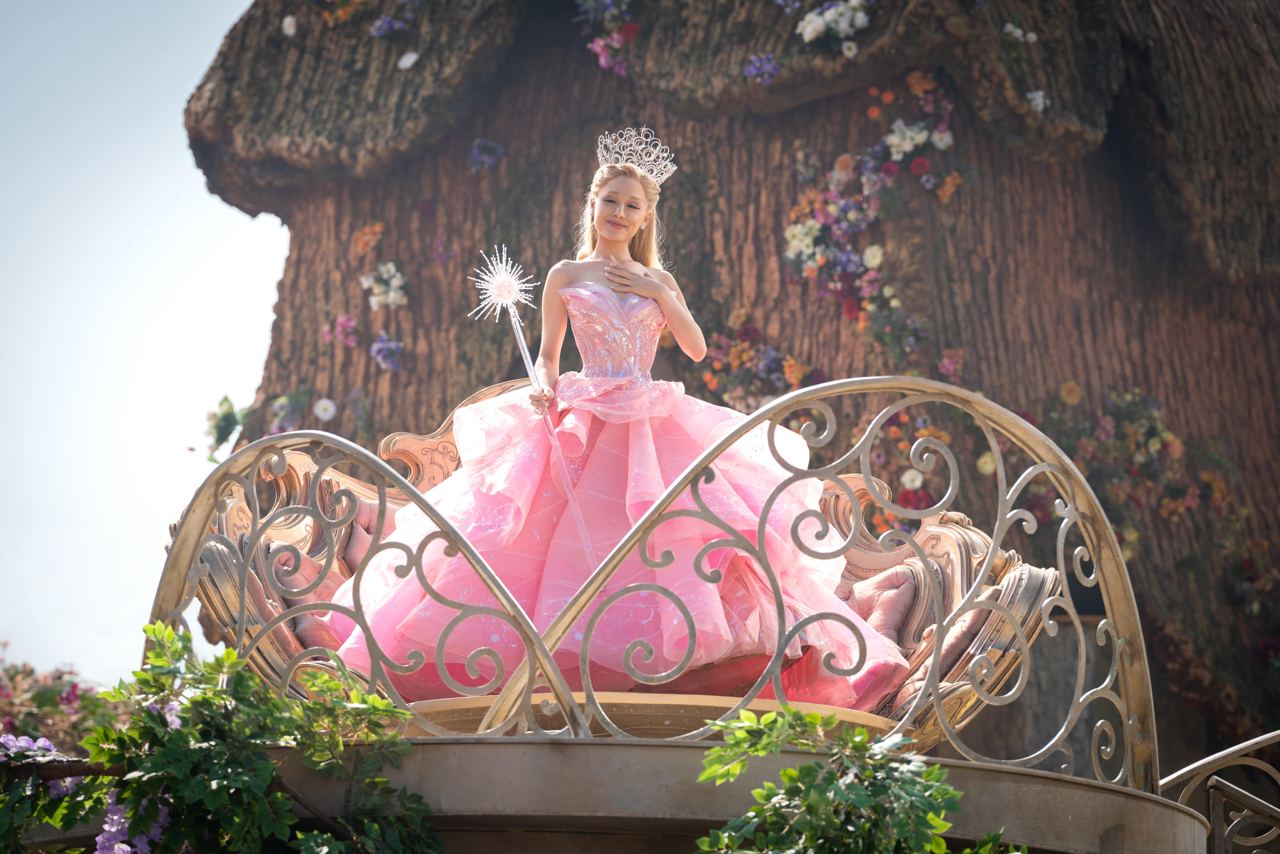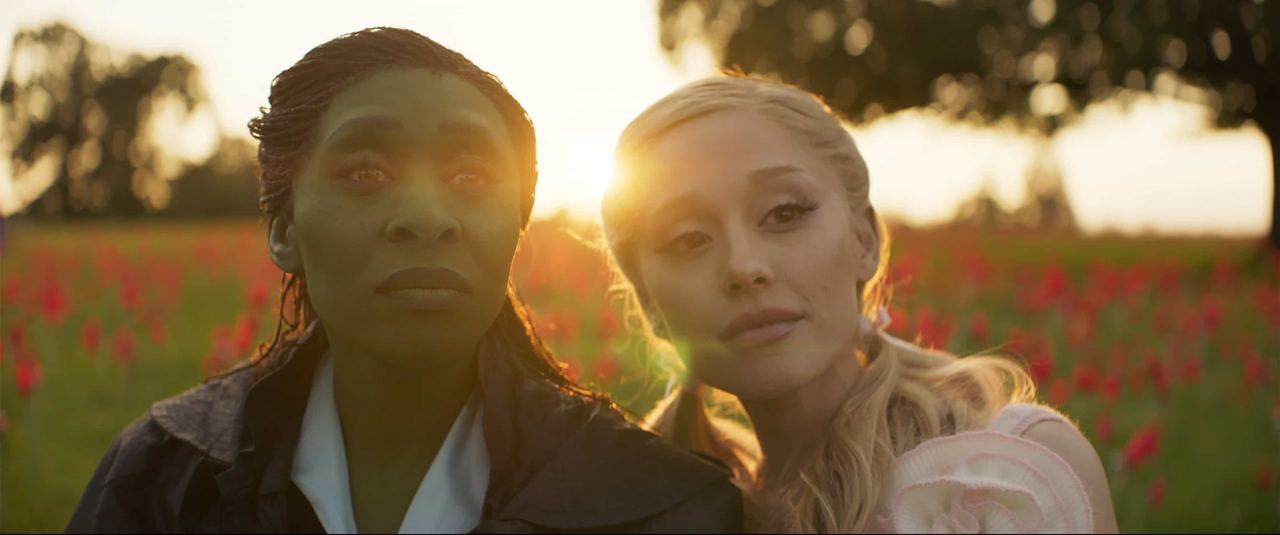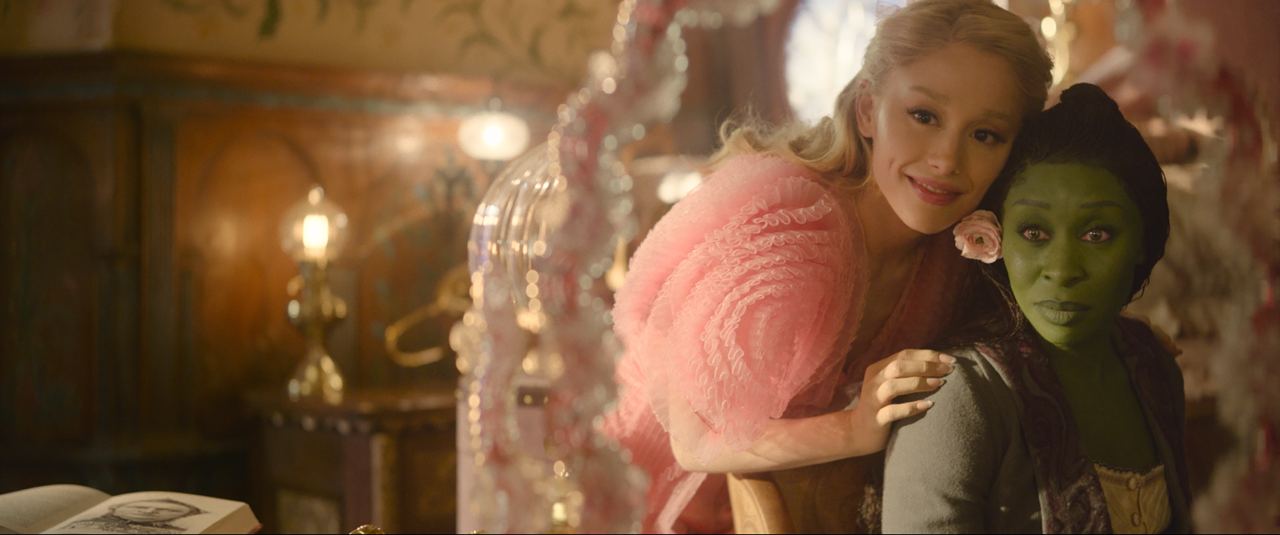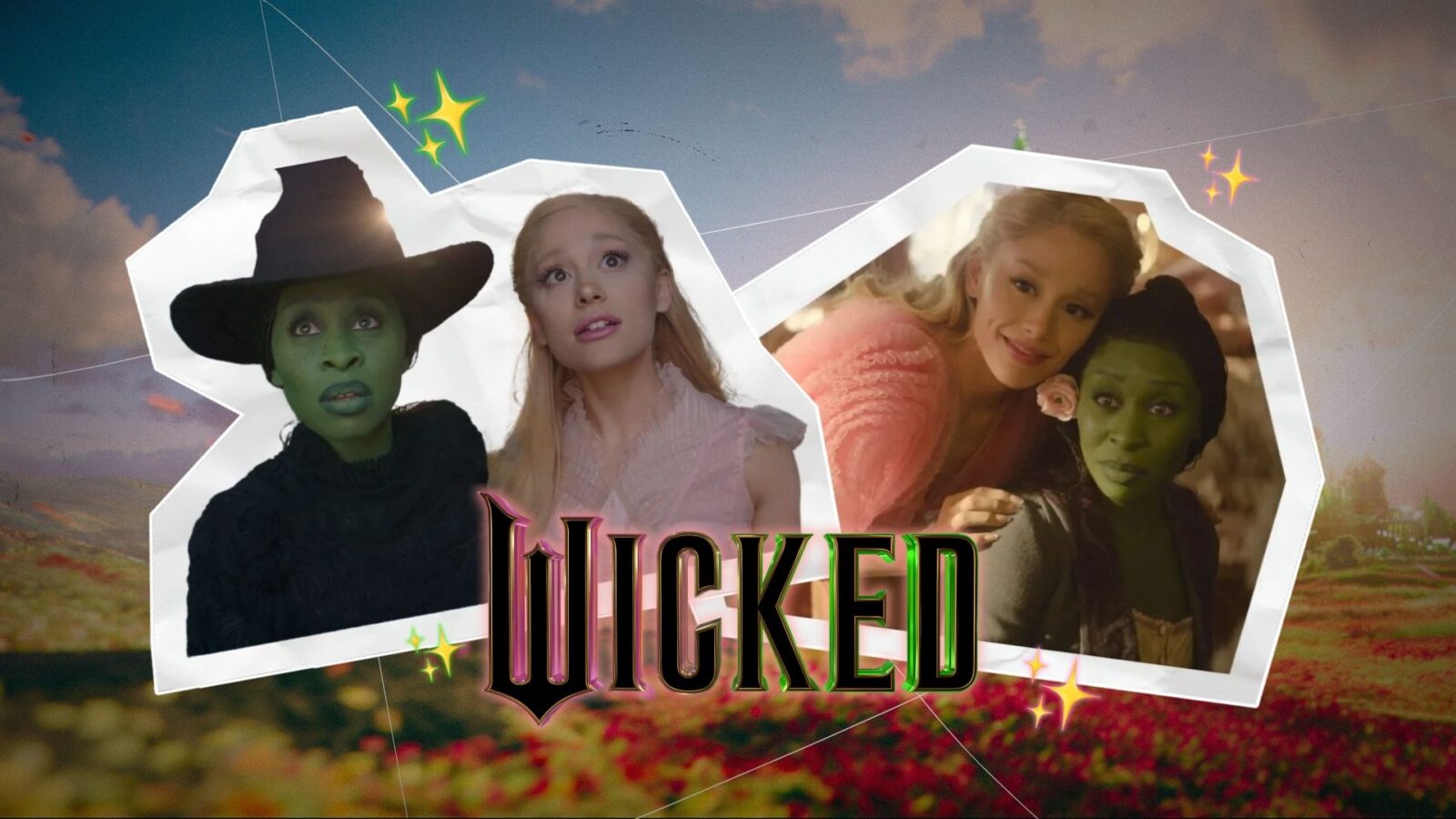‘Wicked: Part I’ (2024) is a whimsical, emotional, enjoyable time, but what stands out the most is the magical connection between its two main characters.
The following contains spoilers for the entirety of the Wicked story.
Related: End The Year Right With These New Movies And Shows Of December 2024
Can you hold space for yet another thinkpiece about Wicked: Part I (2024)? Sure, you can. We could talk about what everybody seems to love talking about—the bloated runtime, the drab, less-than-stellar lighting or set design for a majority of the scenes, the weird fourth wall-breaking full-face-frontal shots sparsely sprinkled throughout, or even the fact that its lead stars cry at every interview.
But, in line with that last one, let’s actually talk about the complex, sob-inducing, yet heart-achingly beautiful magic that is Glinda and Elphaba’s deep yet tragic friendship. At the heart of Wicked is a friendship between two women who come from different walks of life, at first clashing, but eventually forming a relationship that serves to dissect simplistic notions of being good vs. being “wicked.” After watching it, we totally get why Cynthia Erivo and Ariana Grande were was emotional as they were during the press run.
A MAGICAL JOURNEY

Let’s get this out of the way—the music was fantastic, the cast gave it their all, Jonathan Bailey is a treasure, the outfits were exquisite, and we can almost forgive the almost three-hour runtime because of how fun of a watch it was.
However, a large part of the allure of Wicked (both the musical and especially the movie) lies in the push-and-pull between Glinda (Ariana Grande) and Elphaba (Cynthia Erivo), two people in the midst of a conflict much bigger than they are, with a conflict of their own that the rest of the world isn’t privy to. Their friendship lies at the core of the film and the narrative, and not enough praises can be sung for the actors who brought this friendship to life (and to its inevitable, heartbreaking doom).
Right at the beginning of the film, we can see Glinda wrangling with the complexity of celebrating the death of the “Wicked Witch of the West” with the townsfolk, knowing what she knows and how she’s lived, and mourning the loss of her friend—Ariana conveys the inner turmoil perfectly, catering to people who know what went down and also piquing the interest of those who don’t.

Ariana and Cynthia brought familiar, yet new life to the decades-old tale of Elphaba and Glinda, with Ariana channeling her best bubbly, self-absorbed Kristin Chenoweth’s Glinda (still, with the classic likeable, comedic charm and that entertaining dramatic flair), clearly having the time of her life; and Cynthia conveying the breadth of emotion a character like Elphaba—born different, treated different—in a way that can only be described as enthralling.
Cynthia drew from her own experiences as a queer Black woman (she said so herself, and it came through in her performance) and crafted a strong-willed yet vulnerable and empathic Elphaba that’s clearly struggled with her insecurities her whole life. The juxtaposition between the two is obvious, and each actor played their part with plenty of heart.
The scene in the OzDust Ballroom and everything leading up to it was a turning point in the relationship between these two initially-clashing characters. Glinda giving Elphaba a hat she and her friends thought was gaudy in anticipation of the witch getting made fun of—an act that Elphaba viewed as kind—was something she was encouraged to do at the behest of said “friends.” Because Glinda cares about being liked and accepted just as much as Elphaba does.
Once Elphaba comes to the party and realizes Glinda’s initial intention, and Glinda realizes how wicked she was for choosing to do so—even sending her posse a scathing, disappointed look for urging her once again to let the “outsider” remain an outsider—things take a turn.
Awed by Elphaba’s strength to endure, to stay and dance despite knowing of the mockery she was facing—again, accepting her fate of being alone and ostracized—Glinda softens, joining her on the dance floor. Here, they both let go, opening themselves up to the possibility of friendship. It’s a stunning moment that leaves no eye dry and no throat choked up in the theater, especially when Glinda wipes a tear from Elphaba’s face (a beloved moment that was not scripted).
Glinda and Elphaba are not polar opposites—they both stand out in Shiz Academy as “different,” and whether they admit to it or not, they both are longing to be accepted in one way or another. This moment of connection between them, where Glinda does away with any vanity and self-preservation and validates Elphaba, and Elphaba finds someone who truly sees her and accepts her and even admires her, was so powerful.
Glinda even takes on an “Elphie trait” that sets up hope for the final act. When Glinda joins Elphaba on the dance floor, she stands up for something—someone—besides herself, something we come to know Elphaba is wont to do. Their friendship then grows with understanding that the other is and can be “good,” and genuine care for each other. While Glinda and Elphaba don’t necessarily see eye-to-eye on things, they change for good as they come to love and learn from each other.
Every time Glinda urges Elphaba to not be afraid, encouraging her to be the person she admired and believed in, it strengthened Elphaba’s own faith in herself. Unfortunately, it ultimately culminates in them takitng different paths in life as the problems in Oz come to surface.
CROSS BRICK ROADS OF DESTINY

This insurmountable difference in belief comes to a head at the climax of the film, where Elphaba takes Glinda’s words to heart. She exclaims, “I’m not afraid! It’s the Wizard who should be afraid of me!” Elphaba’s “deep-rooted sense of justice” and drive to resist the Wizard’s wicked ways and Glinda’s lack thereof (she believes Elphaba can still do good alongside the Wizard) only widens the rift between them.
It’s a daunting question to consider outside of the narrative: if you knew that encouraging your friend to be their truest self, to fully embody that which you have always admired them for, would lead to growing distance between you two, would you still do it?
If you truly love that friend, if you know that it would set them free and let them do what they think is right, then the answer would be yes. The beginning of Defying Gravity follows Glinda and Elphaba clinging on to the belief that they can be unlimited together, with Glinda initially following Elphaba because she trusts and believes in her.

But as it goes on, and Elphaba dons the cloak, hat, and broom proudly as she comes into her own, it becomes clearer that they are each about to make drastically different decisions. “I hope you’re happy,” is a line that starts biting, but turns sincere once they realize standing firm on their beliefs will lead to them parting ways. It’s bittersweet, but they know where they stand.
Glinda and Elphaba are now at a crossroads, yet each one still understands, accepts, and loves one another. The movie does well to depict this relationship between two women, remarkably different but perhaps not complete opposites—though they end up, metaphorically, completely opposite each other by the end. Ariana herself talked about how sometimes, in life, you have to take a different path from someone you love while also understanding that their path is what’s best for them.
Theater kid/appreciator or not, this is something everyone can understand. We know these days it’s far easier to find friends of the same motivations and perspectives as you (echo chambers and all that), and social media deems it easy to drop friends who don’t have the same opinions about injustices and conflicts and how to go about them as you do, but it’s often still more complicated than that. It’s easy to look at the big picture and say these things, but inner turmoils are harder to articulate and consider. Wicked presents that well.
Regardless, these differences will lead to choices that will hurt both Elphaba and Glinda, and even in the next part, the rift will only grow. But that’s how it was meant to go.
PEOPLE CHANGE PEOPLE

It’s a tragedy. We know who each of these characters are and no matter how many times we reason with ourselves that they could have stayed together—or that Glinda could have joined Elphaba, that there could have been other ways to bring about change—we know them well enough to understand deep down that they can’t.
They stand on opposite sides of the fence, resolute in taking the path they chose. But one can argue that they each stand where they do eventually because their friendship has changed each other. They even have a whole song dedicated to that sentiment, For Good, which for sure will be just as painful as it is on the big screen as it is on stage or through speakers.
Wicked ends bittersweet, and it will end the same as it has since 1995, but the messages it’s imparted about the magic of friendship, standing up for and uplifting others, believing in your power, resisting injustices, as well as about the ambiguities of goodness and wickedness and how people can influence and change others for good, continues to resonate as powerfully as each musical note.
Photos courtesy of Universal Pictures
Continue Reading: 9 Lessons On Love, Loss, And Growth From Bar Boys: A New Musical





